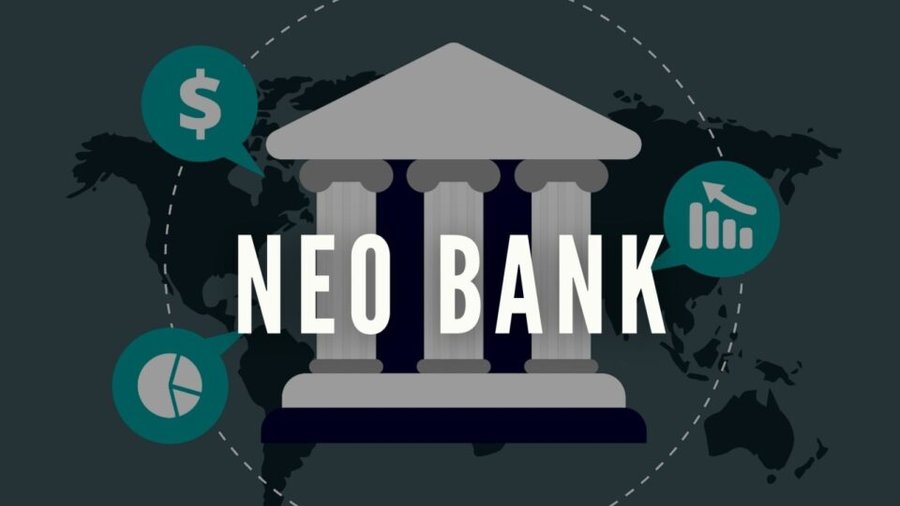Introduction
The financial landscape has witnessed a significant transformation in recent years with the emergence of neobanks. This article will explore the rise of neobanks, their impact on traditional banking, and the reasons behind their growing popularity.
What Are Neobanks?
Neobanks, often referred to as digital banks or online-only banks, are financial institutions that operate exclusively in the digital space. They do not have physical branches like traditional banks. Instead, all banking services are accessible through mobile apps or websites.
A Shift in Banking Paradigm
- Traditional Banking vs. NeobanksTraditional banks have been the cornerstone of the financial industry for decades. They operate brick-and-mortar branches and offer a wide range of services, from savings accounts to loans. However, neobanks are challenging this status quo with a fresh approach to banking.
- Convenience is KeyNeobanks emphasize convenience. Customers can open accounts, perform transactions, and manage their finances from the comfort of their homes. This convenience has made them particularly appealing, especially to tech-savvy individuals.
The Benefits of Neobanks
- Low or No FeesNeobanks often have lower overhead costs, allowing them to offer competitive rates and minimal fees. Many neobanks offer fee-free accounts, which is an attractive feature for consumers.
- Innovative FeaturesNeobanks are known for their innovative features. They frequently introduce unique savings tools, budgeting apps, and other financial services that cater to modern consumer needs.
- Global AccessNeobanks often provide international banking solutions, making it easier for individuals to manage their finances while traveling or living abroad.
The Rise of Neobanks Worldwide
- Global ExpansionNeobanks are not limited to a specific region. They are rapidly expanding globally, reaching customers in various countries. Some well-known neobanks include Chime, Revolut, and N26.
- Favorable RegulationsMany countries are now introducing regulations that support the growth of neobanks, making it easier for these institutions to operate and thrive.
The Impact on Traditional Banking
- Competition Heats UpTraditional banks are facing increased competition from neobanks. This competition is driving innovation and forcing traditional banks to enhance their digital offerings.
- Changing Customer ExpectationsCustomers are increasingly seeking digital solutions for their banking needs. Traditional banks are under pressure to adapt to these changing expectations to retain their customer base.
Challenges and Concerns
- Security and TrustNeobanks must prove their reliability and security to gain the trust of customers who are accustomed to traditional banking systems.
- Regulatory ChallengesAdhering to financial regulations and compliance can be a complex process for neobanks, which can hinder their growth.
The Customer-Centric Approach
Neobanks are known for their customer-centric approach. Unlike traditional banks that can sometimes feel impersonal, neobanks focus on providing tailored services to their customers. This personal touch extends to various aspects of banking, such as account management, financial advice, and customer support. Neobanks use advanced analytics and technology to understand their customers’ financial behaviors and offer services that cater to their specific needs.
Fintech Integration
One of the reasons behind the success of neobanks is their seamless integration with financial technology, or fintech. Neobanks often partner with fintech companies to provide cutting-edge financial services. This integration results in features like real-time transaction tracking, automated expense categorization, and investment tools that are easily accessible through mobile apps. This high level of integration not only makes financial management easier but also enhances the overall user experience.
Financial Inclusion
Neobanks are also contributing to financial inclusion. They are extending banking services to individuals who were previously underserved or excluded from the traditional banking system. This includes freelancers, gig economy workers, and people with limited access to physical bank branches. Neobanks offer these individuals a chance to manage their finances more effectively and access essential banking services.
The Role of Artificial Intelligence
Artificial intelligence (AI) is a crucial component of neobank operations. These digital banks use AI algorithms to provide personalized financial recommendations, detect fraudulent activities, and improve the efficiency of their customer support. AI also plays a significant role in credit scoring, allowing neobanks to assess a customer’s creditworthiness quickly and accurately.
Regulatory Challenges and Security
While neobanks offer numerous advantages, they are not without challenges. Security and regulatory compliance are paramount concerns. Neobanks must adhere to stringent security measures to protect customer data and financial transactions. Additionally, they must navigate complex regulatory landscapes, which can vary from one country to another. Overcoming these challenges is crucial for the long-term success of neobanks.
Read more: Neobanks and Financial Inclusion: Unlocking a World of Possibilities
The Future of Neobanks
As neobanks continue to gain popularity, their influence on the financial industry is expected to grow. We can anticipate further innovation and expansion, with more neobanks entering the market. Moreover, traditional banks are likely to adapt by enhancing their digital offerings and customer experiences to remain competitive.
The Role of Mobile Banking
Neobanks heavily rely on mobile banking apps, which have become integral to their success. Mobile apps provide users with a user-friendly interface that allows them to carry out various financial tasks, from checking account balances to transferring money, with just a few taps on their smartphones. The accessibility of these apps has made neobanking even more appealing, especially for the younger generation, who are accustomed to managing their lives through their mobile devices.
Targeting Specific Niche Markets
One of the strategies employed by neobanks is targeting niche markets. Some neobanks cater specifically to students, travelers, or small business owners, tailoring their services to the unique financial needs of these groups. This specialization allows them to offer targeted solutions, such as fee-free international transactions for travelers or budgeting tools for students.
Open Banking and Collaboration
Neobanks often embrace open banking, a concept that encourages financial institutions to share customer data securely with authorized third-party providers. This collaboration enables neobanks to offer a broader range of services, including access to other financial institutions’ products, allowing them to operate as a one-stop financial hub.
Ecosystem Expansion
Neobanks are not just limited to traditional banking services. Many are expanding their ecosystems to include a variety of financial products such as investment options, insurance, and personal loans. By diversifying their offerings, neobanks aim to become comprehensive financial service providers, meeting more of their customers’ financial needs.
Technological Advancements
The rise of neobanks is intrinsically linked to technological advancements. Cloud computing, data analytics, and machine learning play a pivotal role in improving their services. For instance, neobanks use data analytics to provide insights into a customer’s spending patterns, helping them make better financial decisions.
Customer Loyalty Programs
To attract and retain customers, neobanks often offer loyalty programs and incentives. These programs may include cashback rewards, referral bonuses, or discounted rates for certain services. Such offerings make neobanking more appealing and cost-effective for customers.
The Green Banking Trend
Many neobanks are embracing eco-friendly practices and promoting ethical financial behavior. Some neobanks offer eco-friendly banking options, such as planting trees for every transaction made, to attract environmentally-conscious customers.
Addressing Global Financial Challenges
In regions with limited access to traditional banking, neobanks have emerged as a solution to address financial challenges. They offer an opportunity for the unbanked and underbanked populations to access essential financial services without the need for physical bank branches.
Navigating the Competitive Landscape
As more neobanks enter the market, competition intensifies. To remain competitive, neobanks must constantly innovate and differentiate themselves. This competition is a driving force behind the continuous improvement of digital banking services, benefitting consumers with more choices and enhanced services.
In conclusion, the rise of neobanks is a multi-faceted transformation of the banking industry. Their emphasis on convenience, technology-driven solutions, and customer-centricity is reshaping the way individuals manage their finances. As neobanks continue to evolve and innovate, they are likely to maintain their position as a significant force in the financial world, challenging traditional banks to adapt and improve their offerings.
Conclusion
The rise of neobanks is reshaping the way we interact with financial institutions. Their convenience, innovative features, and global reach are attracting a growing number of customers. Traditional banks are feeling the pressure to evolve in response to this disruptive force in the industry.
Read more: Challenges and Opportunities for Neobanks
FAQs
- What is a neobank?A neobank is a digital-only financial institution that operates without physical branches, providing banking services exclusively through online platforms.
- Do neobanks offer competitive interest rates?Many neobanks offer competitive interest rates on savings accounts, often surpassing those of traditional banks.
- Are neobanks safe to use?Neobanks must adhere to security and regulatory standards. It’s essential to choose a reputable neobank with robust security measures.
- Can I access neobank services internationally?Yes, many neobanks offer global access, making it convenient for users to manage their finances abroad.
- Are neobanks the future of banking?While neobanks are gaining popularity, traditional banks continue to play a significant role in the financial sector. The future of banking is likely to be a blend of both traditional and digital banking services.
Image Source: LinkedIn




